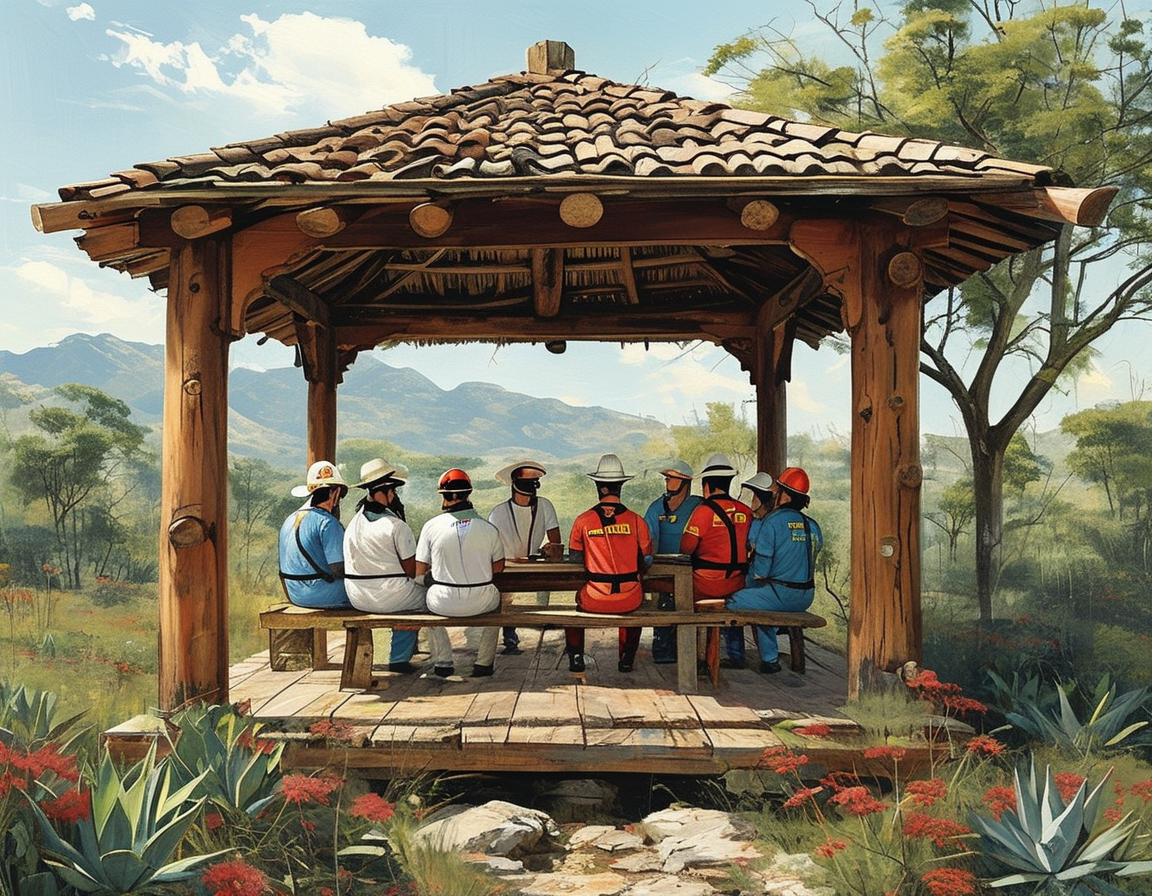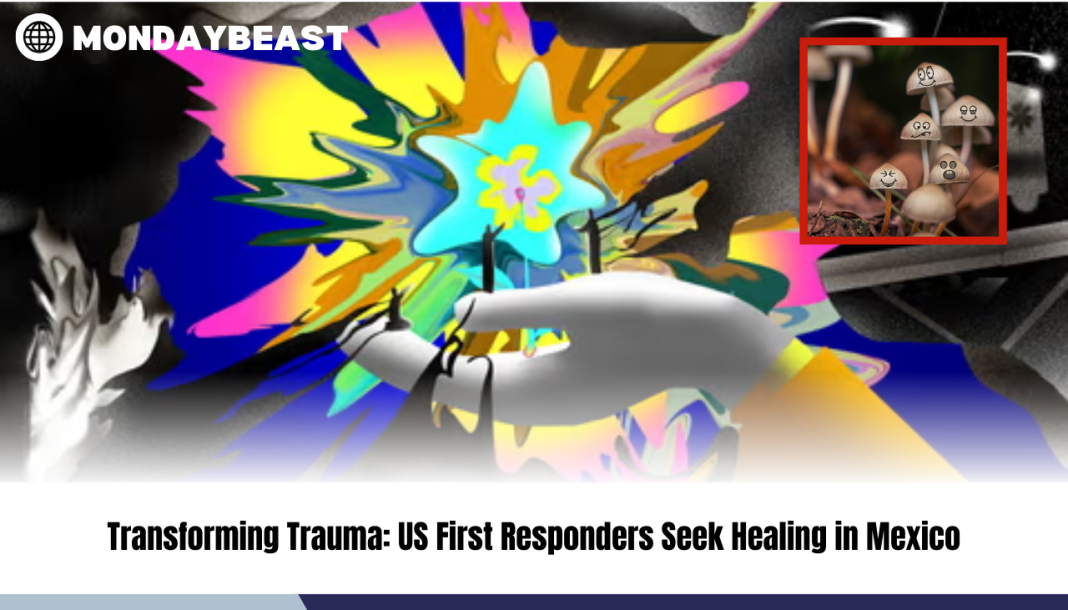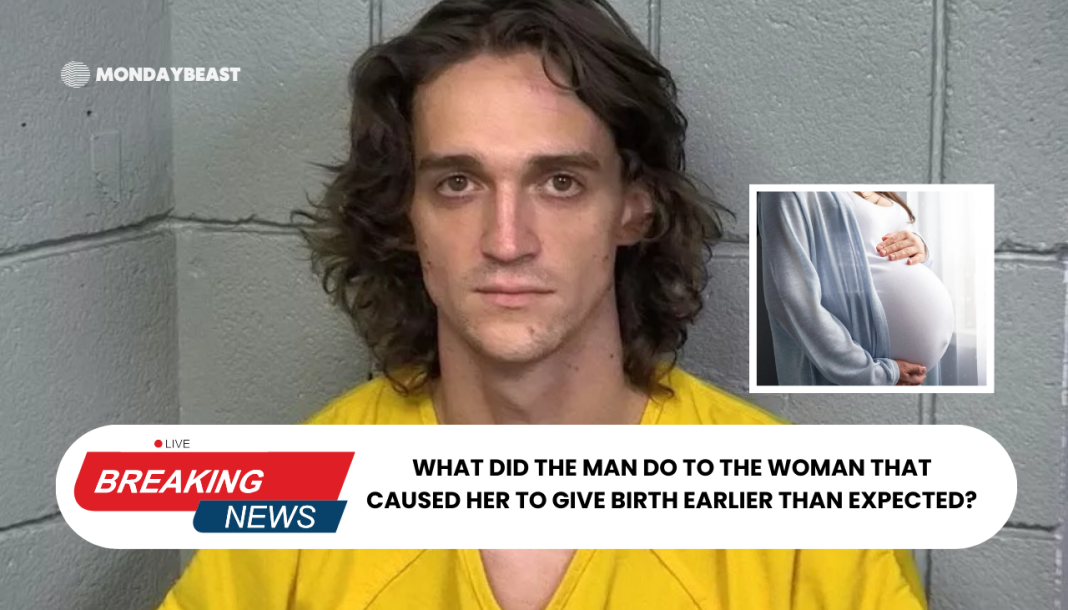A Journey for Healing
The US mental health crisis looms over us all. For first responders, the stakes are higher. Many grapple with trauma, anxiety, and nightmares that linger. They face not just the horrors of their jobs, but also a stigma that discourages vulnerability. How do they heal when their roles demand constant strength?
In mid-September, seven first responders embarked on a transformative journey. They traveled to a sun-kissed villa in Mexico, hoping for a glimpse of relief from the heavy burdens they carry. With burdens formed by years of service, they sought another way to find peace. Standing under a wooden pergola, they shared their pain, their voices trembling, as they spoke of loss, rage, and unmanageable grief.

Among them was a firefighter from North Carolina. “I love my job. I love my team,” he said, his eyes glistening with tears. “But my mind is broken.” His story mirrors countless falls into despair that first responders face daily. The CDC warns that suicide rates for these heroes have reached alarming heights, often eclipsing their on-duty fatalities.
A New Approach: Psychedelics in Therapy
In recent years, an increasing body of research has shone a light on psychedelic therapy. Evidence suggests that substances like psilocybin can be life-altering for individuals grappling with PTSD and depression. But what does this mean in practical terms?
Angela Graham-Houweling, a former firefighter, found herself at a crossroads. Battling her own demons, she connected with experts offering these psychedelic treatments. “When you reach a point of hopelessness, you have to take risks,” she reflected, recalling her leap into the unknown. The retreat was her chance to confront profound trauma through a lens that felt revolutionary.

Participants like Graham-Houweling described their experiences during the retreat as transformative. During the ceremonies with psilocybin, they reported renewed feelings of peace as emotional baggage began to lift. This method can feel radical, but many believe it’s time for a change. Traditional therapies often fail—a notion echoed by studies revealing that SSRIs and counseling aren’t always enough for first responders.
Facilitating the Experience
Guided by experts, including healers with Indigenous wisdom, participants underwent intricate preparations before the retreat. Complete dietary changes set the stage for their psychedelic journeys. They eliminated substances from their diets, aiming for mental clarity. The focus was to learn to reconnect with emotions long buried under layers of service-related trauma.
The experience was not without challenges. Following the ceremonial consumption of psilocybin, emotional reactions varied greatly. Some participants sobbed like they hadn’t been allowed to for years. Others sat quietly, awash in memories, confronting ghosts of the past. Graham-Houweling described her first experience with 5-MeO-DMT as profoundly liberating, leaving her stripped of preconceptions, raw, and open.

Her newfound perspective left her wanting more. “Why should this medicine be available only to those who can take the leap?” she pondered. The answer propelled her mission to create the Siren Project, offering these retreat experiences for free to those in need. For Graham-Houweling, healing others became her new calling.
A Broader Perspective
Rob Poynter, a retired deputy sheriff, also struggled with anger and frustration after years in high-pressure situations. He learned about psychedelic retreats after years of battling his inner turmoil. Inspired by his own research, he found the Siren Project and joined the group in Mexico, sharing common frustrations about traditional therapies.
Poynter’s journey highlights an essential truth: first responders often face a lack of resources. Insufficient support can leave them grappling alone with traumatic experiences. “Being in this line of work has its costs, and many just can’t find enough help,” he expressed thoughtfully.
Together with Graham-Houweling’s story, Poynter’s encapsulates the challenges faced by first responders. Both are committed to advocating for the wide accessibility of these therapies. They don’t want anyone else to feel isolated or abandoned in their fight for mental wellness.
The Road Ahead
As the participants returned home, they carried with them tools for coping—methods they hadn’t previously accessed through conventional approaches. Thomas, a former EMT, noted improvements in focus and clarity. He marveled at the life-altering effects of the therapy. “I feel lighter,” he said. “My memory is better.” There was a depth of relief in his voice.
Graham-Houweling dreams of a future where psychedelic therapy is accessible for all first responders. She believes that legal frameworks must evolve to support this vision. “We’ve seen what these treatments can do,” she insisted, determined to keep fighting for change.
With each story, each experience, hope flickers that brighter days may be on the horizon. Healing doesn’t only come from medication and therapy sessions—it can spring from a willingness to explore new frontiers. For many first responders, this journey into the world of psychedelics offers more than just therapy; it offers a way to reclaim their lives.




